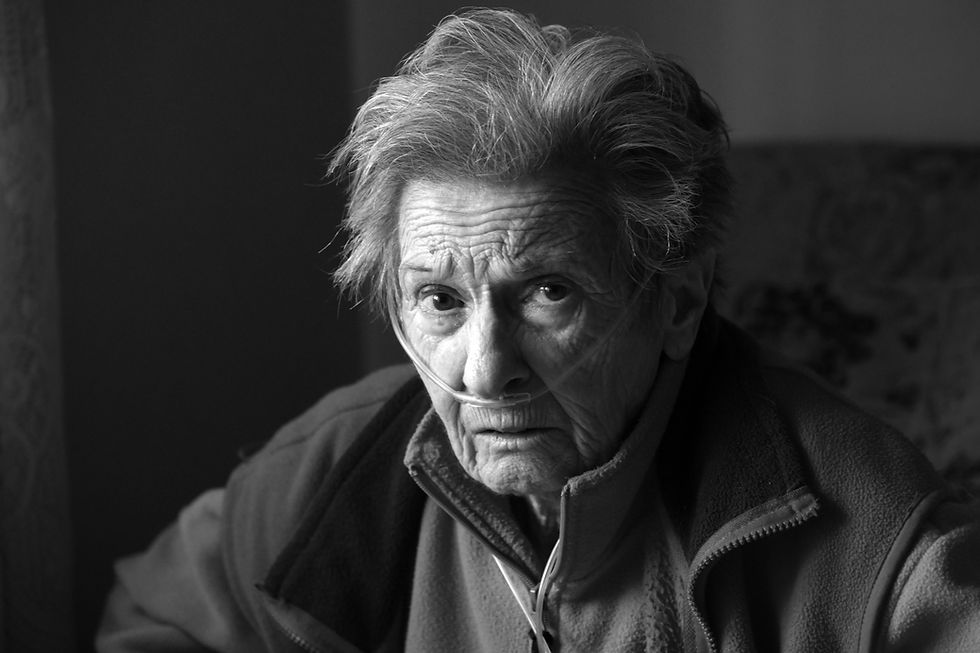Dementia Sleep Problems: A Complete Guide for Family Caregivers
- Ilya Rybin
- Jul 22
- 3 min read
Sleep disturbances in dementia patients significantly affect the quality of life for both individuals suffering from dementia and their caregivers. Addressing sleep problems effectively can reduce caregiver stress, enhance patient well-being, and improve overall caregiving quality. This comprehensive guide will delve deeply into why dementia patients struggle with sleep, common sleep-related issues, detailed strategies to improve sleep, recommended products and technological aids, and practical answers to frequently asked questions.

Understanding Dementia Patients Sleep Problems
Sleep problems are among the most challenging symptoms caregivers face in dementia care. Several interrelated factors contribute to sleep disturbances:
Changes in Brain Structure and Chemistry
Dementia involves progressive brain changes, including neuron loss and chemical imbalances, that disrupt natural sleep-wake cycles. These neurological changes impact circadian rhythms, reducing the brain’s ability to distinguish day from night. Additionally, the reduction of melatonin production, a hormone crucial for regulating sleep, contributes significantly to sleep disruptions.
Sundowning Syndrome
Sundowning refers to increased confusion, restlessness, agitation, and anxiety occurring during late afternoon or evening hours. This phenomenon exacerbates nighttime difficulties, often leading to insomnia or frequent awakening.
Physical Discomfort and Pain
Underlying health conditions, chronic pain, or general discomfort, such as arthritis, gastrointestinal issues, or bladder discomfort, can disrupt sleep patterns in dementia patients. Additionally, the inability to effectively communicate pain or discomfort often exacerbates these sleep disruptions.
Medication Side Effects
Certain medications prescribed for dementia or other related health issues can significantly affect sleep patterns, either inducing excessive drowsiness during the day or causing restlessness at night.
Common Sleep Issues in Dementia Patients
Sundowning
Sundowning is characterized by a marked worsening of symptoms, such as confusion, irritability, aggression, and restlessness during late afternoon and evening. These symptoms often peak at night, severely impacting sleep quality and routine.
Night Confusion and Wandering
Many dementia patients become disoriented at night, losing track of time or location. This can lead to wandering, potentially causing safety risks and disrupting caregivers’ sleep patterns.
Insomnia and Sleep Fragmentation
Insomnia, difficulty falling asleep, or frequent awakenings throughout the night is common in dementia patients. This disrupted sleep cycle further complicates caregiving responsibilities and increases caregiver burnout.
Effective Strategies to Improve Sleep Quality
Establishing Consistent Routines
A structured daily routine greatly benefits dementia patients, providing predictability and comfort. Consistent waking and bedtime schedules reinforce circadian rhythms, helping patients distinguish day from night.
Wake and sleep at consistent times each day.
Introduce relaxing pre-sleep rituals like quiet reading or soft music.
Creating a Calming Sleep Environment
The environment profoundly affects sleep quality:
Maintain comfortable room temperature.
Use nightlights to prevent disorientation and anxiety.
Reduce noise disturbances by using white noise machines or soft background sounds.
Ensure comfortable bedding and familiar surroundings to reduce anxiety.
Physical Activity and Daylight Exposure
Physical activity during the day promotes better sleep at night by reducing restlessness and anxiety.
Incorporate daily walks, stretching, or gentle exercises.
Exposure to natural sunlight in the morning helps reset circadian rhythms, clearly distinguishing day from night.
Dietary Considerations
Nutrition significantly impacts sleep:
Avoid caffeine and heavy meals late in the day.
Provide light snacks before bedtime, such as warm milk or chamomile tea.
Minimizing Evening Stimuli
Reducing stimulating activities and environmental stressors in the evening can lower anxiety and confusion associated with sundowning:
Limit loud sounds, bright lights, or engaging television programs.
Introduce calming activities like listening to soothing music, gentle massage, or quiet conversation.
Recommended Products and Technological Aids
Nighttime Safety Products
Motion sensor nightlights: Help reduce anxiety caused by darkness and disorientation.
Door alarms and sensors: Provide alerts if the patient begins wandering.
Weighted blankets: Promote feelings of comfort and security.
Sleep Aids and Comfort Enhancers
White noise machines or calming sound machines: Mask disruptive background noises.
Adjustable beds: Provide optimal comfort, particularly for patients with mobility issues or pain.
Therapeutic pillows and bedding: Enhance physical comfort, reducing sleep disruptions.
Apps and Digital Tools
Dorothy App: Assists caregivers in tracking daily habits, medications, sleep routines, and symptom management effectively, promoting better sleep patterns and overall dementia care.
Practical FAQs for Caregivers
What medications can safely help dementia patients sleep?
Medications should always be discussed thoroughly with healthcare professionals. Low-dose melatonin or certain antidepressants might be recommended, but caregivers must monitor closely for side effects.
How do I manage sundowning syndrome effectively?
Maintaining a structured routine, limiting afternoon naps, ensuring adequate daytime activity, and creating a calm, familiar evening environment are effective methods for managing sundowning.
When should professional medical help be sought?
If sleep problems significantly affect safety, health, or daily life quality, consult healthcare providers. Chronic insomnia, severe anxiety, or frequent nighttime wandering are indicators that medical intervention may be required.
Conclusion
Effectively managing sleep disturbances in dementia patients involves structured routines, environmental modifications, lifestyle adjustments, and supportive technologies. By implementing these comprehensive strategies, caregivers can significantly enhance sleep quality, reduce caregiver stress, and improve overall caregiving experiences.
.png)


